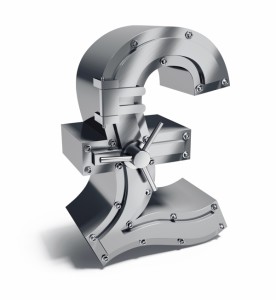Days after the Bank of England governor said he’ll tolerate faster price gains in his efforts to support the economy, more than 70 percent of economists in Bloomberg’s monthly survey said the Monetary Policy Committee will cut the benchmark rate to a record-low 0.1 percent on Nov. 3. The panel, which will keep its quantitative-easing program running as planned, will present new economic projections the same day.
The pound’s 18 percent drop since the Brexit vote is creating a dilemma for policy makers because it’s fueling faster inflation. As BOE staff crunch numbers and prepare the crucial new quarterly forecasts, they’ll have to take into account the impact of the currency move and leave Carney to decide on the right time for more easing.
“It’s going to be a pretty close call,” said Victoria Clarke, an economist at Investec in London who currently predicts a cut but plans to review the forecast in the coming weeks. “It’s an incredibly difficult one this time around, particularly with sterling having moved that much further.”
The economists’ forecasts are increasingly at odds with the money markets, which show traders see just a 5 percent probability of a reduction next month, down from 17 percent after the BOE’s September policy meeting.
The pound’s depreciation took it to a three-decade low earlier this month, pushing up consumer prices. The inflation rate rose to an annual 1 percent in September, the fastest pace since 2014, data today showed. U.K. government bonds are also falling, pushing the 10-year yield to its highest level since the Brexit referendum result.
via Bloomberg
